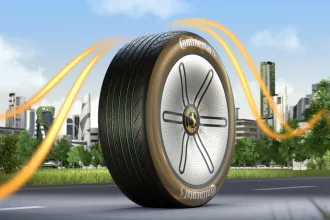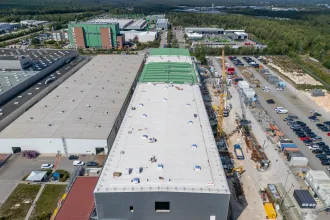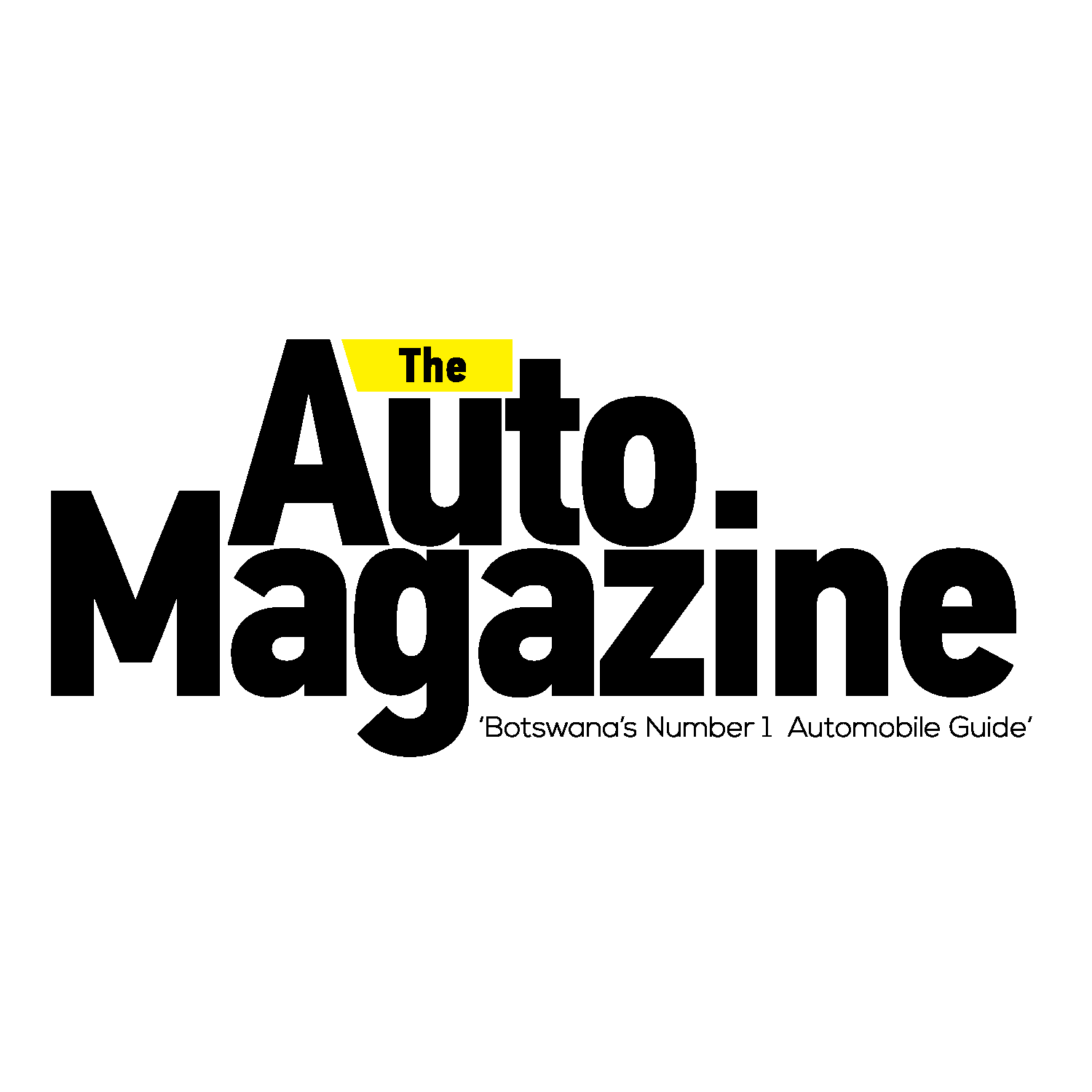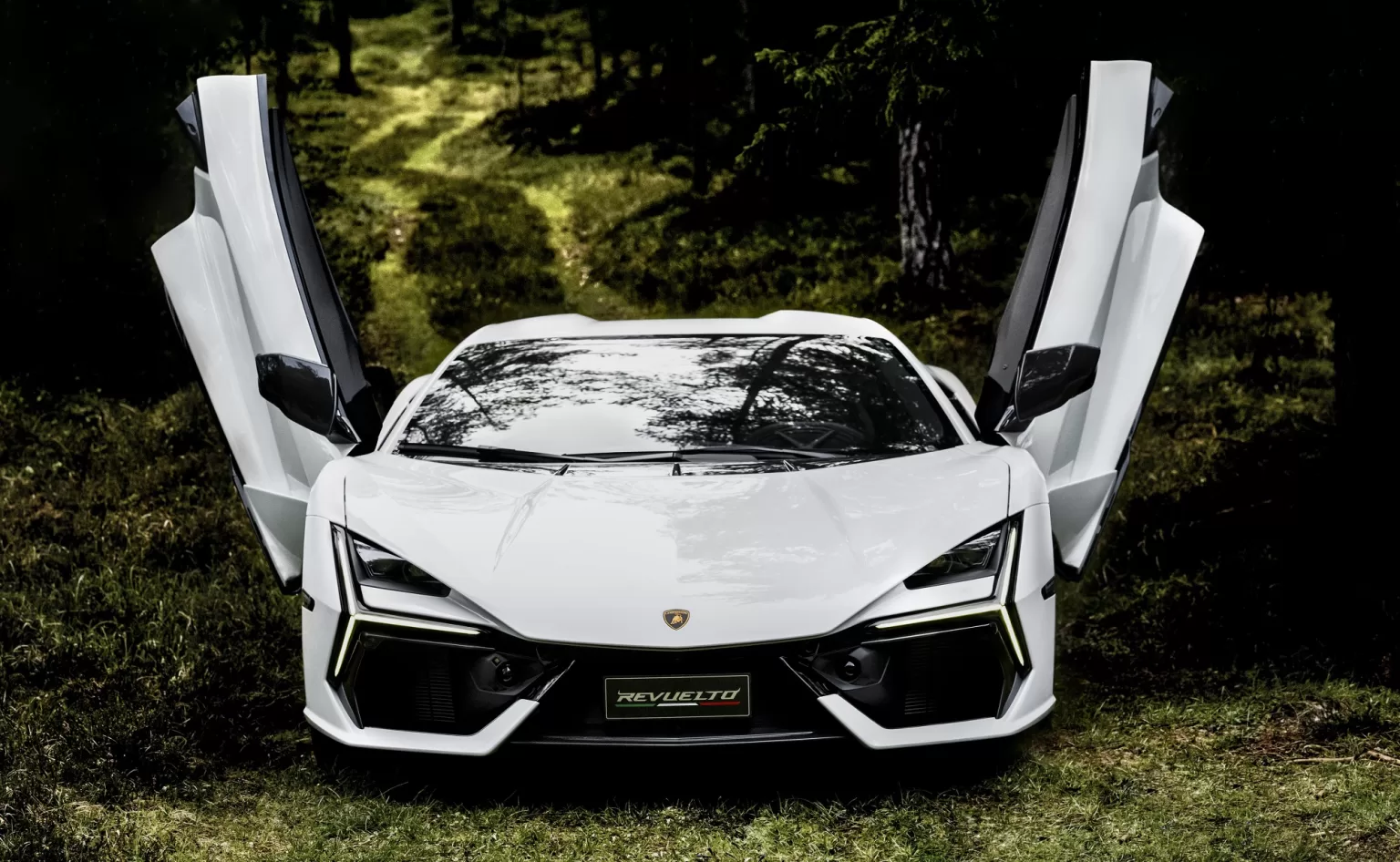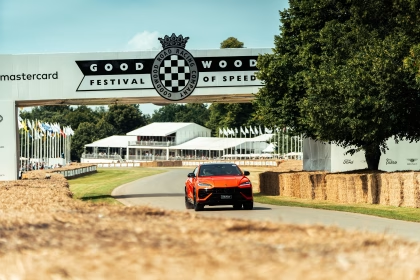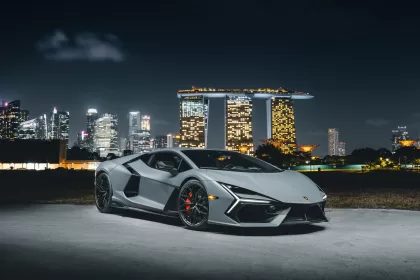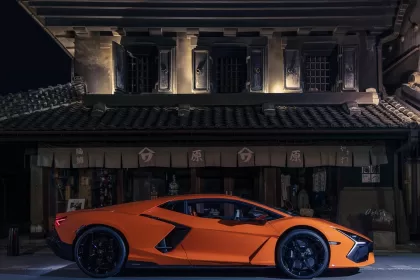The Lamborghini Revuelto, the company’s all-new hybrid V12 super sports car, has already captured the popular imagination with its combination of design, innovative technology and high performance. Now Automobili Lamborghini celebrates the arrival of the new car by involving one of the world’s greatest photographers, Anton Corbijn.
In a series of exclusive images, the Dutch artist has applied his incomparable eye to the Revuelto’s stunning yet highly efficient form. During a shoot spread over two days in the Dolomite mountains, Corbijn channelled 50 years of experience and vision into a subject he’s less well-known for: an automobile. “Some people call me a music photographer but I’m really not,” he says. “In any case I like to go beyond the area that I’m known for.”
For anyone interested in music, photography or the graphic arts, Anton Corbijn really needs little introduction. Born in the Netherlands in 1955, he is one of the great artists of our time – a photographer, film maker and creative director. He began his career as a music photographer in his homeland before relocating to London in the late Seventies.
Over the last decades, he honed his signature style to such an extent that his work became immediately recognisable. Corbijn is responsible for some of the defining images of artists such as David Bowie, Miles Davis, Joy Division, Gerhard Richter, Marlene Dumas, Bruce Springsteen, Tom Waits, and countless others. But more even than that, he helped establish an entire visual and creative direction for two of the biggest bands in music history, Depeche Mode and U2.
The cover artwork for the latter’s albums The Joshua Tree (1987) and Achtung Baby (1991) are among the most revered of all time, stunning visual representations of the music within. Corbijn is currently working with Depeche Mode on the band’s 2023 world tour. He has also directed a handful of award-winning films, including Control (2007), The American (2010), which starred George Clooney, and A Most Wanted Man (2014) with Philip Seymour Hoffman.
“People say that I have a style, but I always think that style is defined by your inability to do it any other way,” Corbijn says. “I didn’t have an education in photography so I’m just making do with what I have. Technique is low on my list and I can’t say I have mastered anything. You find ways to make something if you don’t have all the possibilities. I learned that from Brian Eno, actually.”
He continues: “Minimise your choices and then become very inventive with the little things you have left. I photographed black-and-white in the beginning because it was the only thing I could develop myself. Then I found it was stronger than colour in terms of self-expression. With just two lenses and a camera, I will always be able to make a picture.”
This was an approach Lamborghini was thrilled to embrace when it came to his interpretation of the hugely anticipated Revuelto. With its carbon fibre ‘monofuselage’ and expressive design, the new car represents the apex of Lamborghini’s achievement as the company celebrates its 60th anniversary. The Revuelto is powered by a 6.5-litre V12, aided by three electric motors, to deliver an overall power output of 1,015CV. This is truly the state-of-the-art, as it exists in Sant’Agata Bolognese, and a formidable combination that proved inspiring to Corbijn.
“Lamborghini represents sophistication in cars. It is a beautiful, sophisticated and chic name for any product,” he says. “We chose the Dolomites to make the car feel like it’s a foreign body in the forest, like an animal raring to go. Nature is fantastic to work in but it’s very difficult because nature is usually so beautiful it takes over. The car balances out the beauty of the forest with the visual power of the car. I’m a Taurus myself, so I appreciate the roots of the Revuelto’s name. The car is a sculpture and yet it moves damn fast.”
For Corbijn, forging a personal connection with the subject is everything. He works fast, he says, and remains true to the values embodied by Lamborghini itself: going beyond, but with bravery and authenticity.
“I try to keep authenticity in my work. It’s really difficult because visuals are very popular and everyone is a photographer now, so it’s difficult to make your mark. But that’s why you should really stick to your own thing. I shoot fast, in a kind of documentary approach. I don’t work in a nine-to-five job so I do my own thing. I’m happy that a lot of people seem to like it, but I would still do it even if that was not the case. My work in the beginning was very brave because nobody really liked it. You have to believe in yourself and keep doing it. Plus, I had no idea what else to do.”
